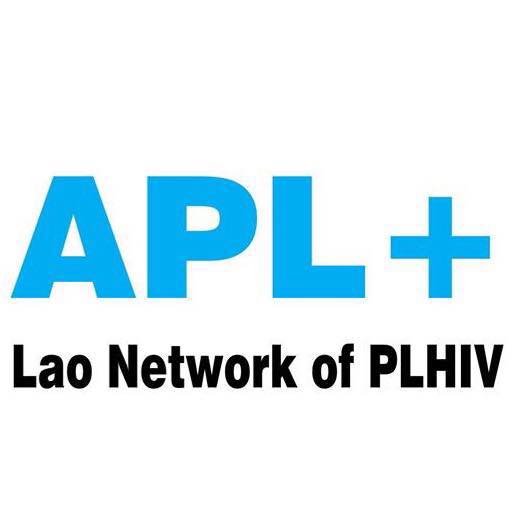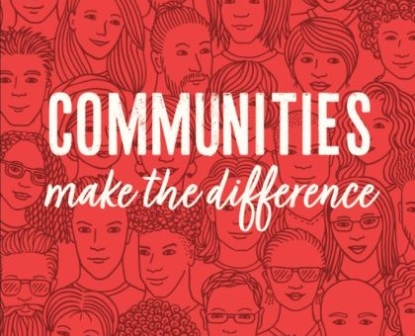Project
SWAC: Scale up the capacity of women living with HIV/AIDS and awareness campaign for risk communities
-
Amount Funded
25,000 EUROProject Duration
01 Oct 2019 - 30 Sep 2020 -
-
Lead organisation
Association of People Living with HIV/AIDS (APLHIV)
-
The Lao Network of people living with HIV/AIDS (LNP+) was established in 2003 under the umbrella of the Lao Red Cross to work with people living with HIV/AIDS nationwide with an emphasis on 12 provinces, based on decrees of Association. The LNP+ was registered and approved as a legal entity on June 28, 2012, as the Association of People Living with HIV/AIDs Network (APL+). In 2011, the APL+ expanded the network into 12 provinces (12 self-support groups) around the country with 707 members, including 341 women. The total number of members is currently 1,200 people, including 404 women, who registered with self-support groups (SG). There are 32 permanent members including 14 women in 13 SGs in 13 provinces namely Vientiane capital, Vientiane province, Xayabouly, Luang Prabang, Udomxay, Laungnamtha, Borkeo, Houphan, Bolikhamxay, Khammoun, Savanaketh, Salavan, and Champasak). These provinces are divided into 3 regions (Northern, Middle, and Southern). In each region, 3 people are taking a leading role within the network.APL’s vision is that people living with and are affected by HIV/AIDS (PLHIV) have a better quality of life and equal rights in society and can live without stigma and discrimination. APL’s mission is to strengthen the coordination in partnerships with the Lao government and CSOs as well as CBOs in responding to HIV/AIDS in Lao PDR. APL+ is the key representative and key voice of PLHIV in Laos. To be involved with all programmes related to HIV/AIDS responses and services, to build the capacity for PLHIV at all levels and to respond to the national HIV/AIDS strategic plan.
-
Organisation
The Lao Network of people living with HIV/AIDS (LNP+) was established in 2003 under the umbrella of the Lao Red Cross to work with people living with HIV/AIDS nationwide with an emphasis on 12 provinces, based on decrees of Association. The LNP+ was registered and approved as a legal entity on June 28, 2012, as the Association of People Living with HIV/AIDs Network (APL+). In 2011, the APL+ expanded the network into 12 provinces (12 self-support groups) around the country with 707 members, including 341 women. The total number of members is currently 1,200 people, including 404 women, who registered with self-support groups (SG). There are 32 permanent members including 14 women in 13 SGs in 13 provinces namely Vientiane capital, Vientiane province, Xayabouly, Luang Prabang, Udomxay, Laungnamtha, Borkeo, Houphan, Bolikhamxay, Khammoun, Savanaketh, Salavan, and Champasak). These provinces are divided into 3 regions (Northern, Middle, and Southern). In each region, 3 people are taking a leading role within the network.APL’s vision is that people living with and are affected by HIV/AIDS (PLHIV) have a better quality of life and equal rights in society and can live without stigma and discrimination. APL’s mission is to strengthen the coordination in partnerships with the Lao government and CSOs as well as CBOs in responding to HIV/AIDS in Lao PDR. APL+ is the key representative and key voice of PLHIV in Laos. To be involved with all programmes related to HIV/AIDS responses and services, to build the capacity for PLHIV at all levels and to respond to the national HIV/AIDS strategic plan.
-
Project
The Scale-up the capacity of women living with HIV/AIDS and awareness campaign for risk communities (SWAC) project produces media such as short videos and documentaries sharing stories of those infected with HIV/AIDS as a means to boost confidence, confirm normalcy in living while sensitising the general public that discrimination is wrong. This project is an extended phase of the previous Voice project ‘Empower the hidden voices of women living with HIV/AIDS‘ that provided support through technical training to HIV positive women, men and Men Having Sex with Men (MSMs) who are organised in self-help groups and working in local hospitals.This project undertakes several activities to disseminate knowledge on risk groups to prevent further infections in Vientiane Capital and six other target provinces: Luangnamtha, Borkeo, Luang Prabang, Houaphanh, Oudomxay, and Xayaboury. This increases their knowledge and empowers the target audience to recognise and understand their condition as well as ensure that they feel comfortable. The project also ensures that they have access to information and are properly and appropriately cared for. In addition to this, the project will also enable the administrative restructuring of the association so that it can be relevant to the current context. The purpose of this is to increase the participation of young people within the association, as well as their recruitment.
-
-
The Scale-up the capacity of women living with HIV/AIDS and awareness campaign for risk communities (SWAC) project produces media such as short videos and documentaries sharing stories of those infected with HIV/AIDS as a means to boost confidence, confirm normalcy in living while sensitising the general public that discrimination is wrong. This project is an extended phase of the previous Voice project ‘Empower the hidden voices of women living with HIV/AIDS‘ that provided support through technical training to HIV positive women, men and Men Having Sex with Men (MSMs) who are organised in self-help groups and working in local hospitals.This project undertakes several activities to disseminate knowledge on risk groups to prevent further infections in Vientiane Capital and six other target provinces: Luangnamtha, Borkeo, Luang Prabang, Houaphanh, Oudomxay, and Xayaboury. This increases their knowledge and empowers the target audience to recognise and understand their condition as well as ensure that they feel comfortable. The project also ensures that they have access to information and are properly and appropriately cared for. In addition to this, the project will also enable the administrative restructuring of the association so that it can be relevant to the current context. The purpose of this is to increase the participation of young people within the association, as well as their recruitment.
-
Lack of access to information, knowledge and awareness about HIV and AIDS among high-risk groups such as HIV positive women and men as well as Men who have Sex with Men (MSM) contribute to new infections. Among the general population, lack of awareness about HIV and AIDS contribute to stigmatising and discriminating behaviour, resulting in People Living with HIV/AIDS (PLHIV/AIDS) feeling even more desolate, isolated and shunned – especially when lacking self-confidence. As a result, high-risk behaviour continues. This problem is prevalent in Vientiane Capital and six other provinces of Laos being targeted by the Association of People Living with HIV/AIDS (APL+).
The “Scale up the capacity of women living with HIV/AIDS and awareness campaign for risk communities” project aimed at boosting confidence of PLHIV/AIDS, conferring normalcy to living with HIV while sensitising the general public that discrimination of the infected is wrong. The project undertook activities to disseminate knowledge to high-risk groups to prevent further infections. Interventions also sought to empower PLHIV/AIDS to recognise and understand their condition as well as ensure that they feel comfortable. To this end the project produced media such as short videos and documentaries about stories of PLHIV/AIDS as a means of building agency in adoption of low-risk behaviour. The project also ensured that the high-risk populations have access to information and receive proper care.
This project is an extended phase of the previous Voice project of APL+, “Empower the hidden voices of women living with HIV/AIDS” that provided support through technical training to HIV positive women and men as well as MSM. The trained groups were organised in self-help groups and worked in local hospitals. To build the capacity of APL+ for becoming relevant to the current context and more responsive of the needs of high-risk populations, there was an administrative restructuring and a deliberate strategizing on how to increase the participation of young people within the association, as well as in their recruitment.
APL+ strengthened the peer educators as well as project key implementers based on knowledge transfer. The organisation was empowered and encouraged key population living with HIV who felt comfortable to open up about their status. Those who desired to join the support groups were encouraged to do so. Discussions in small groups were held six times per quarter, reaching 96 people (59 women and girls) with ages ranging from 15 to 60 years. Community-led peer counselling sessions were held in 4 provinces as one of the most successful activities carried out by the peer educators. These groups served as the only spaces close to their communities where PLHIV/AIDS felt safe and met people living with the same disease.
Through the local communities’ campaigns, the most talented peer educators got a platform to speak out in front of a big audience of community people. Peer educators in 2 provinces campaigned 3 times in 3 different villages. They gathered the courage and shared their HIV status during the campaigning, and the campaigning helped the peer educators to learn from their sharing of their real-life experiences. 70 people (42 women and girls) were reached during the outreach.
Books on storytelling:
The project collected four different stories written by HIV positive women and men as well as MSM:
- Infected with HIV+ through mother
- Infected with HIV+ through being a sex worker
- HIV+ infected husband or housewife
- HIV+ of MSM
1000 copies were printed, distributed to 11 care and treatment sites, and provided them during World AIDS Day campaign/event in December 2019.
Resources on Facebook:
- News




